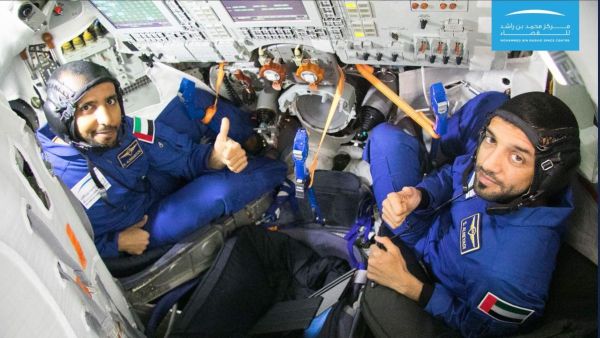The United Arab Emirates has confirmed that its first astronaut will lift off for the International Space Station on the evening of September.
Hazza al-Mansouri, 35, will travel take off from the Baikonur Cosmodrome in Kazakhstan at exactly 5:56pm UAE time (GMT+4).
Al-Mansoori and back up astronaut Sultan al-Neyadi are set to undertake their final exam in Russia on 30 August after having completed their training.
Al-Mansoori will carry out 16 scientific experiments while on the mission.
{"preview_thumbnail":"https://cdn.flowplayer.com/6684a05f-6468-4ecd-87d5-a748773282a3/i/v-i-4…","video_id":"434a80ed-f07a-4a3f-bb12-679fff52907a","player_id":"8ca46225-42a2-4245-9c20-7850ae937431","provider":"flowplayer","video":"After Israeli Strikes: Iraq Would Not be Turned into a Conflict Zone"}
Dubai's ruler, Sheikh Mohammed bin Rashid al-Maktoum, announced the names of the two astronauts last September, however it was al-Mansoori who was later chosen as to carry out the mission.
Emirati media have closely followed their progress, which has seen them train to handle Russia's sub-zero temperatures.
The UAE has a fledgling space programme and launched its first locally made satellite, KhalifaSat, in October from Japan. It wants to launch a probe to Mars in 2020.
The UAE has even bigger ambitions for its space programme, and by 2020 wants to send a probe to Mars. It also seeks to build a city for 600,000 people on Mars by 2117.
This article has been adapted from its original source.








